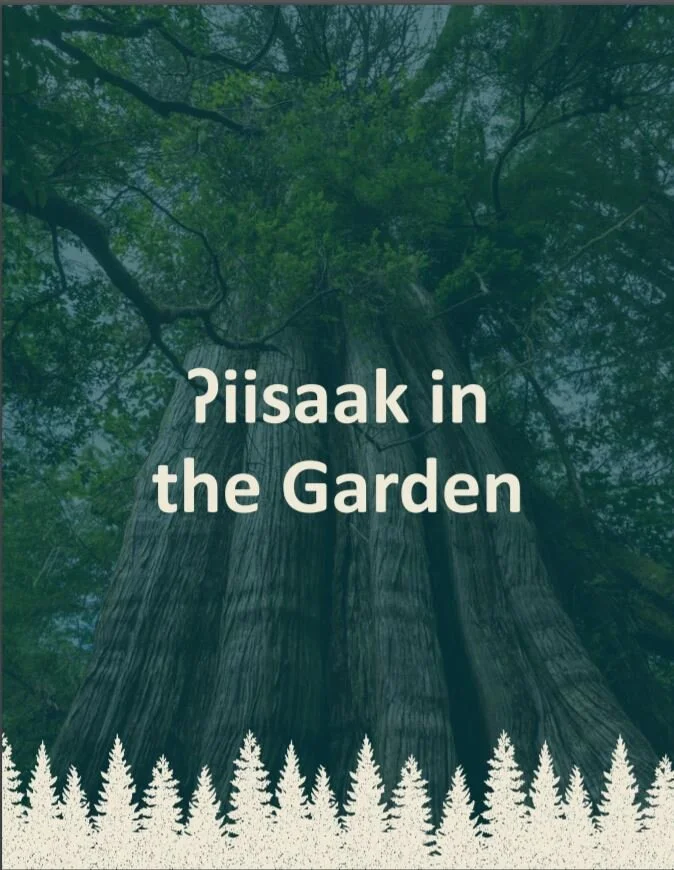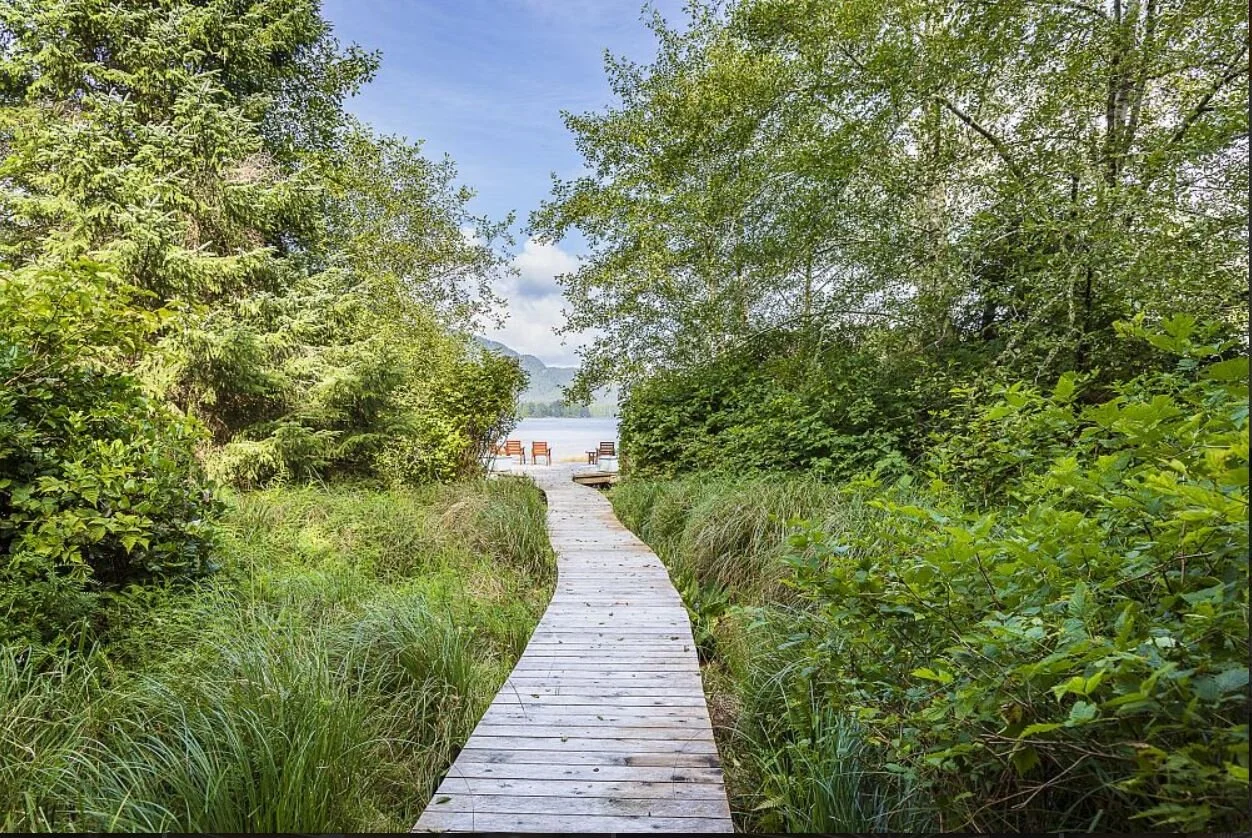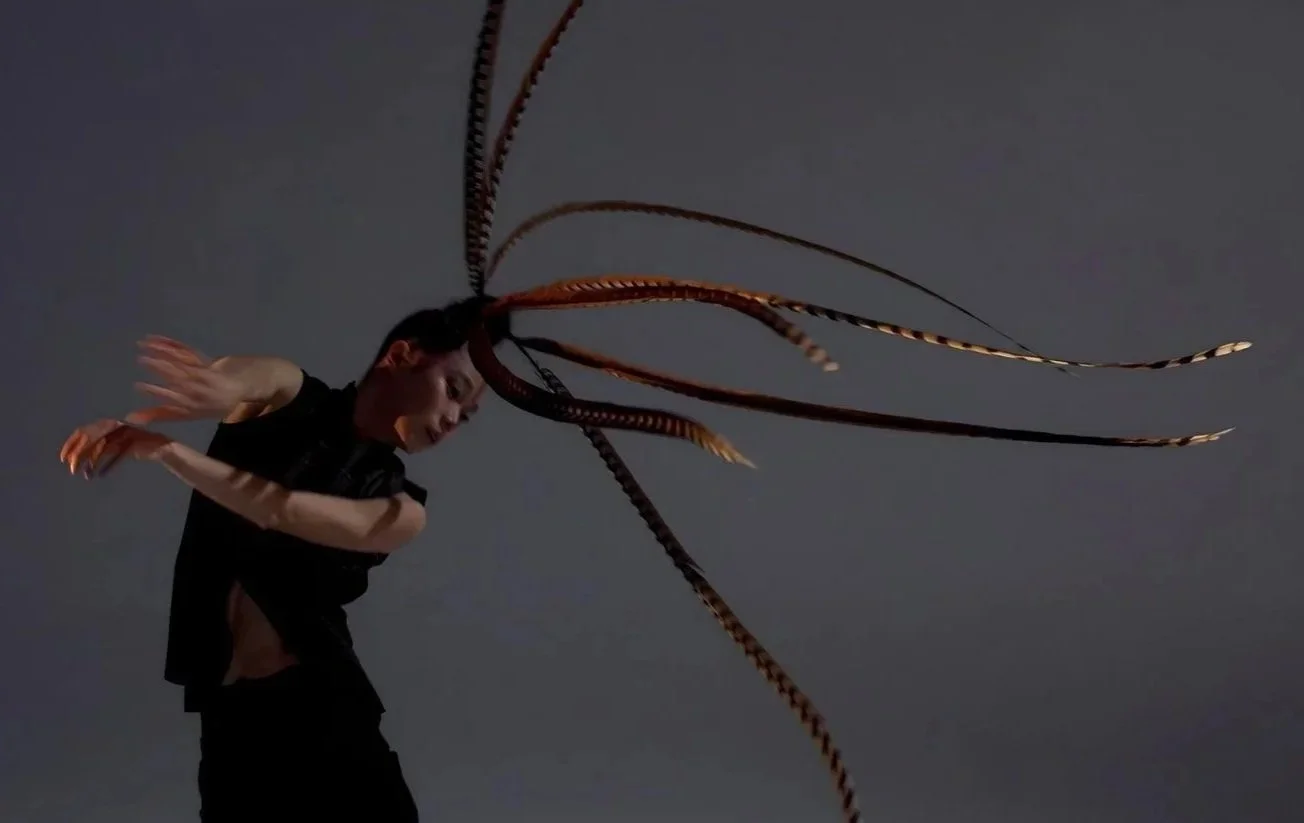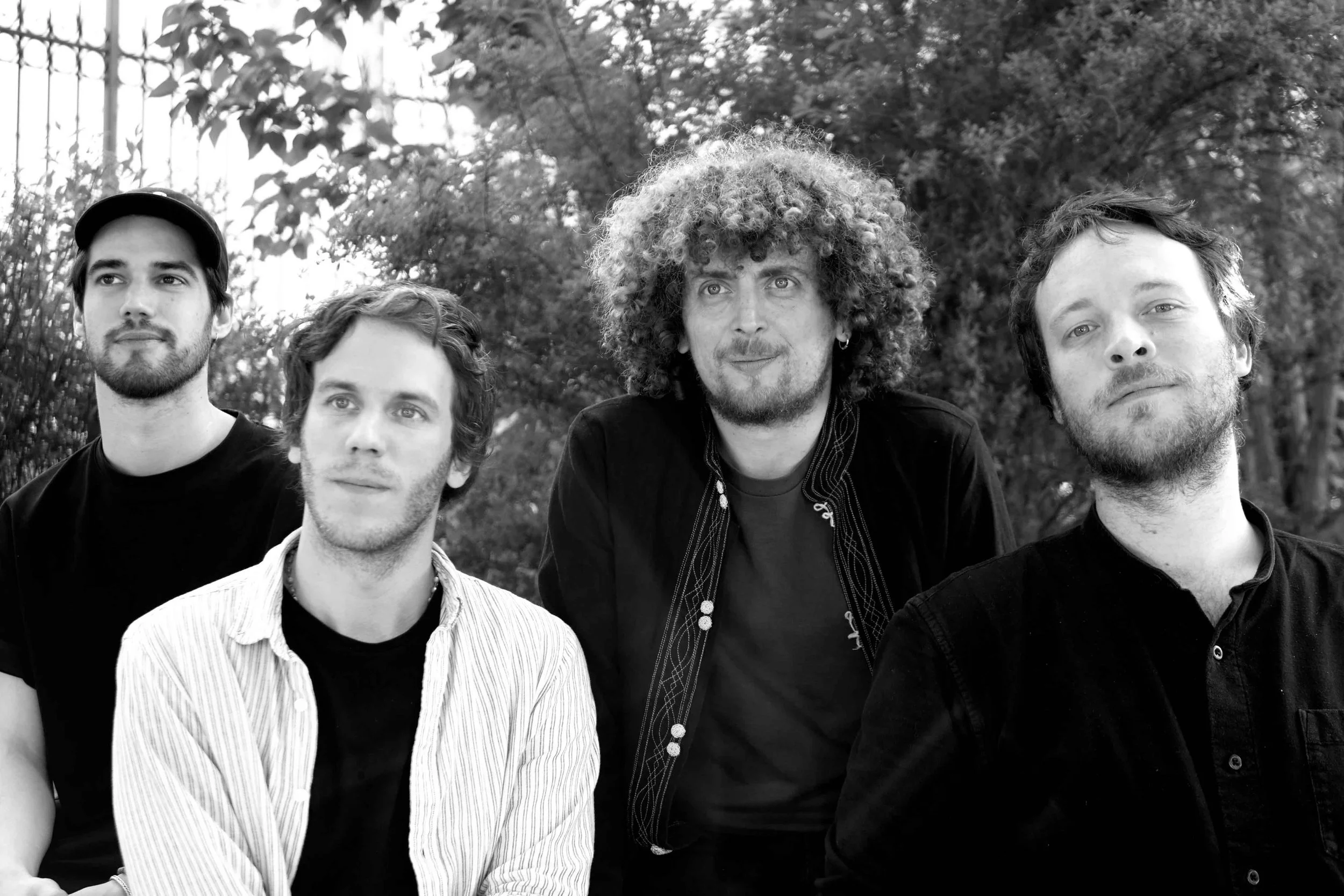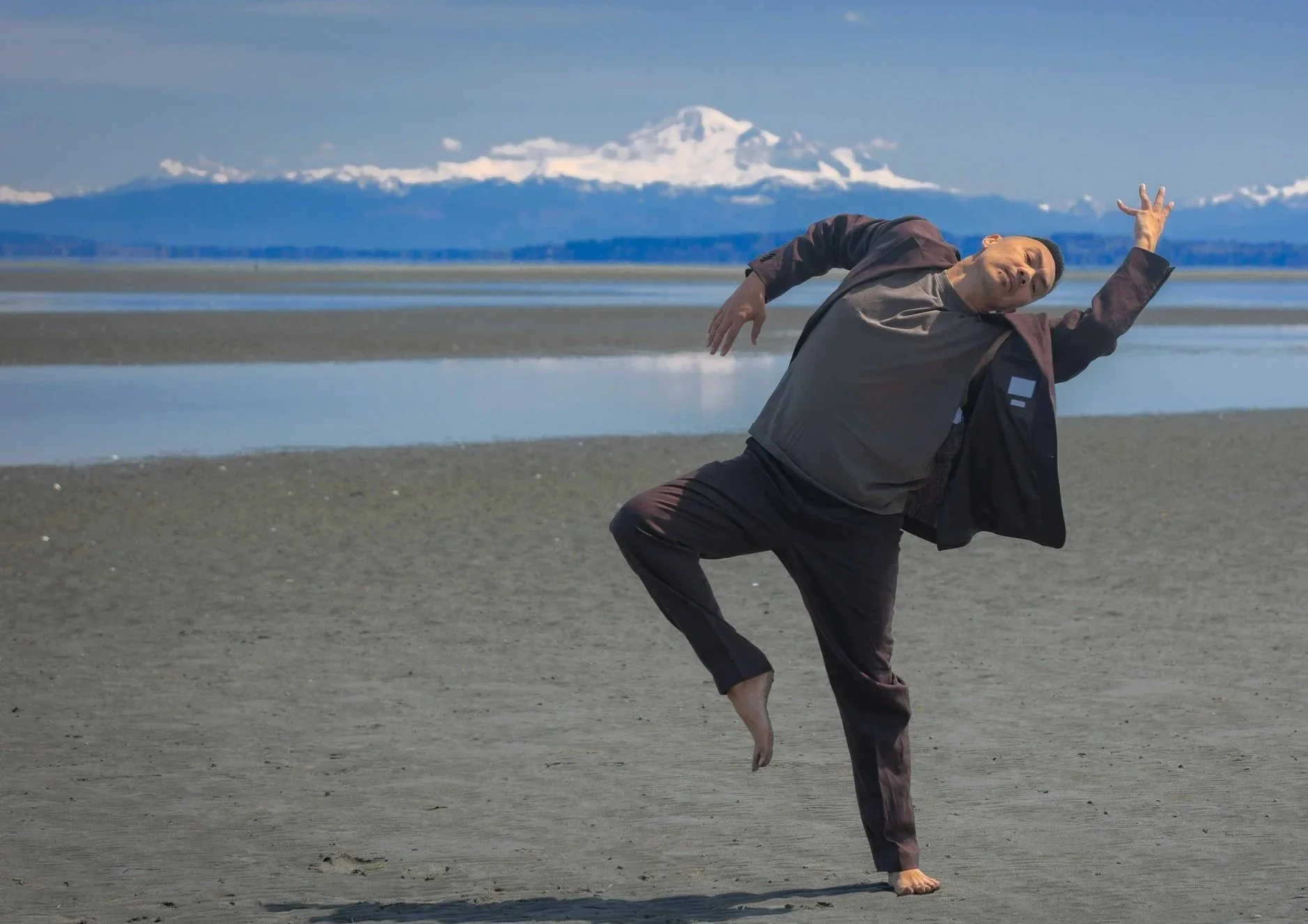New book from Hotel Zed Tofino keeps the story and spirit of the Clayoquot Sound uprising alive
ʔiisaak in the Garden (Respect in the Garden) captures the guardianship history of the Tla-o-qui-aht First Nation’s ancestral territory
ʔiisaak in the Garden is a collaboration by Gisele Martin of the Tla-o-qui-aht First Nation; Ian Gill, a former reporter for CBC TV who covered the Clayoquot Sound uprising; and Joanna Streetly, Tofino’s inaugural Poet Laureate.
THERE’S NO DENYING that the new Hotel Zed Tofino is unlike any other accommodation in the town of about 2,000: it has a 1970s retro-chic vibe throughout, from the vintage sunburst clocks and functioning rotary phones to the sunken living room’s hanging fireplace and wood-panelled station-wagon shuttle.
There’s a psychic’s den and the world’s first bike-through lobby.
Then, in every guest room, is a copy of ʔiisaak in the Garden (Respect in the Garden).
The hotel commissioned the book to share Tofino’s history of environmental activism and guardianship. It’s a joint collaboration by writers Gisele Martin of the Tla-o-qui-aht First Nation; Ian Gill, a former reporter for CBC TV who covered the Clayoquot Sound uprising; and Joanna Streetly, Tofino’s inaugural Poet Laureate.
The Nuu-chah-nulth peoples have been caring for and protecting their traditional territory for thousands of years. The Nuu-chah-nulth Nations in Clayoquot Sound include Hesquiaht, Ahousaht, and Tla-o-qui-aht peoples; Tofino is situated within Tla-o-qui-aht Territory.
ʔiisaak in the Garden focuses on the Clayoquot Sound uprising of the 1980s and 1990s, the largest act of civil disobedience in Canadian history triggered by industrial loggers’ attempt to clear-cut the Tla-o-qui-aht ancestral gardens of Wanačis Ḥiłhuuʔis (Meares Island).
Despite the fact that Tofino draws thousands of tourists every year, it’s a story that many people are unaware of.
Women were at the forefront of the movement. (Maureen Fraser was one of them. She fell in love with Tofino when she first visited in 1974. Upon craving a cinnamon bun, she discovered there was no bakery in town, so she decided to stay and opened the Common Loaf Bake Shop.) As more people learned about MacMillan Bloedel’s plans—and the effect that logging would have on the landscape, ecosystems, and Tofino’s drinking water—momentum grew. Eventually, Tla-o-qui-aht First Nation leaders and members, along with residents and visitors, joined in physical resistance.
The Tla-o-qui-aht spent $5 million on a Supreme Court case that lasted a decade and resulted in a court injunction that put an end to logging on Meares Island.
“The Meares Island confrontation was the first time the whites and natives have gotten together on anything that was worthwhile,” Joe Martin recalls in the book. Along with his late father, Chief Nukmiis, and brothers Carl and late Billy, he carved a dug-out red cedar canoe that helped illustrate his people’s relationship with and claim to their ancestral territory.
ʔiisaak in the Garden co-author Gisele Martin is his daughter. In 1993, as a teen, she travelled with him to Geneva to appear before the United Nations on behalf of the Nuu-chah-nulth Tribal Council Chiefs to renegotiate the International Tropical Timber Agreement. They were the only Indigenous people present. That historical visit was part of a six-week European tour during which the father-daughter duo did an average of four presentations per day to draw attention to Indigenous land rights and the ongoing devastating effects of colonization in general and deforestation in particular.
Hotel Zed Tofino is situated on a protected and critical wetland zone for migratory birds. Photo courtesy Hotel Zed Tofino
Joe Martin and Maureen Fraser are among several people who share their memories and stories in ʔiisaak in the Garden. As the book recounts, Meares Island wasn’t the last of the confrontations between environmental guardians and the logging industry. And the need to protect Nuu-chah-nulth territory remains.
“We didn’t want to write something that would imply everything was resolved in some nice, tidy way,” Gill says in an interview with stir. “There are still tremendously significant issues around forestry, wild fish and fish farming, mining, and, frankly, tourism—ongoing and unresolved issues we felt needed to be paid attention to.
“I don’t think these stories can be told often enough,” says Gill, who went on to found Ecotrust Canada. “What the book does as it ends is point to the fact that this is all unfinished work.”
Streetly points to current logging protests taking place near Port Renfrew as an example of ongoing efforts to fight for Indigenous land. The Fairy Creek watershed is home to old-growth yellow cedars, including one that’s nearly three metres in diameter, one of the largest in the province.
“Everything that was fought for in Clayoquot Sound to stop logging in old-growth forests needs to be expanded out to Vancouver Island as a whole,” Streetly says. “I’m hopeful this little book will help remind people why and how you can stand up for old growth.”
For Hotel Zed Tofino, teaching visitors about the area’s history is an important responsibility. There are plans to re-create ʔiisaak in the Garden as a comic book to make it more accessible to kids.
One of these things is not like the others: Hotel Zed Tofino has a 1970s theme complete with a wood-panelled station-wagon shuttle. Photo courtesy Hotel Zed Tofino
The hotel, which is part of Accent Inns, is situated on the Tofino Mudflats Wildlife Conservation Area, a protected and critical wetland zone for migratory birds. It’s also a member of the Tla-o-qui-aht Tribal Parks Allies.
The program is a way for non-Indigenous residents of and visitors to Tla-o-qui-aht haḥuułi (territory) to participate in stewardship of the First Nation’s lands and waters. To achieve certification, businesses are asked to acknowledge and publicize Tla-o-qui-aht rights and title to the territory, help tell the Nation’s story, and participate in community-building events. Tribal Allies also collect and remit an Ecosystem Service Fee to the Nation.
It’s all part of the Tla-o-qui-aht First Nation’s vision of achieving a conservation economy, “where every dollar spent supports the ecological protection and restoration of the Tribal Parks ancestral gardens and the resurgence of Tla-o-qui-aht culture and governance”. To that end, Hotel Zed Tofino collects a one percent voluntary fee from its guests.


